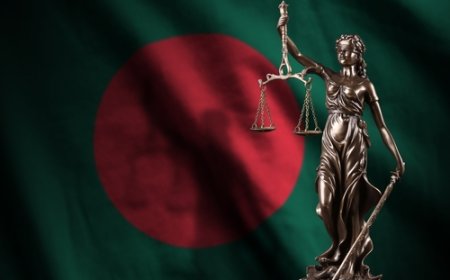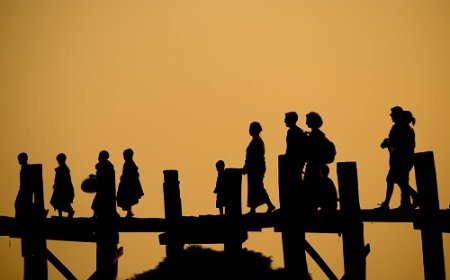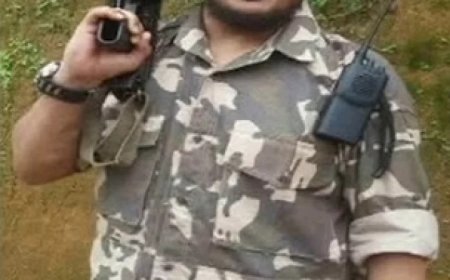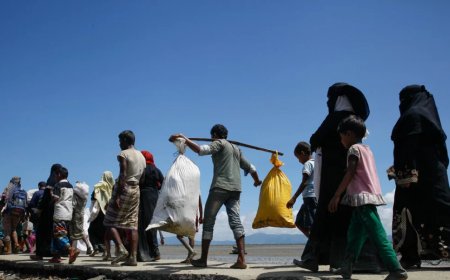Asma Bibi's harrowing journey: A tale of survival, trafficking, and courage
While much of the trafficking narrative involving Rohingya women focuses on destinations like Malaysia, Asma's story is a reminder that trafficking can take many forms and lead to various destinations
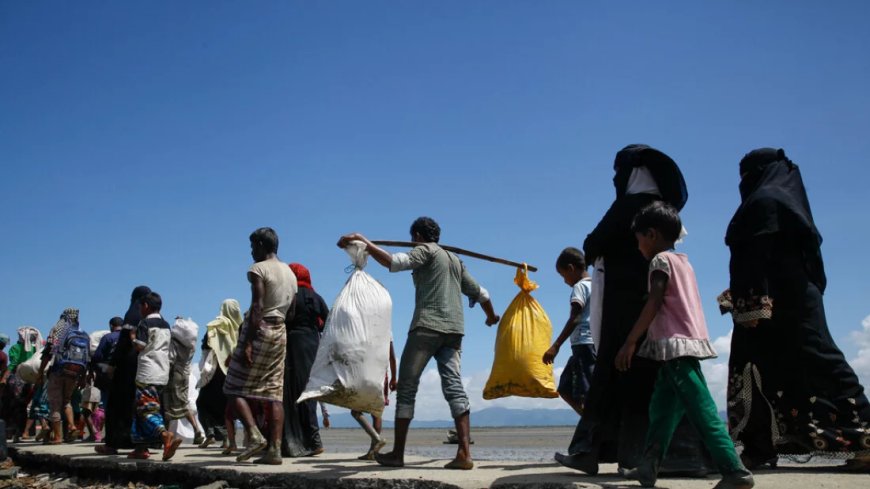
The plight of Rohingya refugees has been marked by displacement, violence, and profound suffering. Among their many challenges, human trafficking has become a devastating consequence of their vulnerability.
In the deteriorating conditions of Bangladesh’s refugee camps, a disturbing trend has emerged: the trafficking of adolescent girls and women for arranged marriages, often to distant lands like Malaysia. Families, desperate to protect their daughters from coercive marriage proposals by criminal elements within the camps, find themselves facing a grim choice between two dangerous options: forced marriage within Bangladesh or the uncertainty of an arranged marriage abroad after a perilous journey.
While Malaysia is a common destination for trafficked women, this story focuses on a young girl trafficked to India under similar circumstances. Asma Bibi, a 19-year-old Rohingya girl, found herself trapped in this cruel practice. Her story begins not with hope, but with a desperate attempt to escape the harsh realities of life in the refugee camps.
Asma Bibi: A journey from desperation to horror
Asma Bibi’s journey began in 2017, in the aftermath of the massive military operation against the Rohingya in Myanmar. Forced to flee her homeland, she found temporary refuge in the camps of Bangladesh. But life in the camp offered little respite. Her family saw only one way out: an arranged marriage in India. They hoped that by sending Asma to marry a relative in Bangalore, she might escape the dangers of the camp and build a new life.
In the middle of the night, Asma and her elder brother made the treacherous journey from Bangladesh to the Indian border. From there, a local agent charged them Tk19,000 each to facilitate their crossing.
After successfully reaching Agartala Railway Station in Tripura, Asma and her brother were detained by local police. They were unable to answer questions due to the language barrier and were subsequently taken to jail. "We were in jail for three months and five days. I was counting each day. It was so stressful; I couldn’t even eat a proper meal, and no one came to see us. It was the darkest moment of my life," she recounted.
During her time in jail, Asma received no support or assistance. Her family, living in a refugee camp in Bangladesh, was too far away to help, and her relatives in Karnataka were 3,500 miles away. The conditions in the jail were harsh, with minimal food and no contact with the outside world, leaving Asma feeling isolated and hopeless.
Trafficking to India: A twist in the tale
While much of the trafficking narrative involving Rohingya women focuses on destinations like Malaysia, Asma's story is a reminder that trafficking can take many forms and lead to various destinations. In her case, India became the destination, where her family had arranged for her to marry a relative in Bangalore. But what was meant to be a safe haven quickly turned into another nightmare.
In desperation, Asma's aunt in Bangalore contacted Shona Mia, 46, a well-known figure among the Rohingya community in Bangalore, who often posed as a missionary. Shona Mia, the son of Hyder Ali, resides in Vikas Puri, New Delhi, and possesses multiple identities across India, Bangladesh, and Myanmar. He had formerly been a refugee in Bangladesh for several years and had been imprisoned in the same jail in 2021, which made him seem like a reliable choice for help. He demanded 3 lakh rupees to secure bail for Asma and her brother. Her family, under immense stress, borrowed money from neighbors and relatives to pay him.
The assault and aftermath
Shona Mia sexually assaulted Asma, threatening her with dire consequences if she told anyone. "He tied my hands with my headscarf, slapped me, and kicked me in the stomach. I cried for mercy, but he kept sexually assaulting me," she said, tears welling up in her eyes.
After two days, her brother was released, and their aunt arrived in Tripura to take them to Bangalore.
Initially, Asma did not tell anyone about the assault, fearing Shona Mia’s threats. However, when she started vomiting, her aunt questioned her, and she finally revealed the harrowing ordeal. The Rohingya community in Bangalore encouraged her to speak up and helped her contact the UNHCR. With their support, Asma filed a complaint against Shona Mia.
Painful revelations
Upon reaching Bangalore, Asma's troubles were far from over. The emotional and psychological trauma of her ordeal continued to haunt her.
"I didn’t tell anyone that Shona Mia sexually harassed me, because I was so afraid," she shared.
Her fear was compounded by the knowledge that her fiancé in India had rejected her upon learning of her pregnancy.
"When I was vomiting, my aunt started asking me directly, and I cried and explained everything. The Rohingya community asked me to raise up my voice and stand against Shona Mia," Asma said, finding strength in the support of her community.
Asma’s aunt, Gulbahar, expressed the profound impact this trauma has had on their family.
“The worst thing is, Shona Mia was threatening my whole family openly, saying he would not let us stay in India if we raised our voice for Asma. My heart is crying for our daughter; she is greatly depressed," Gulbahar shared, her voice heavy with sorrow.
The community's encouragement was crucial in helping Asma come forward. They connected her with social activists like R. Kaleem Ullah of Swaraj India and Rosline Gomes, who helped bring her case to the attention of the police. The police filed a case under rape and criminal intimidation and planned to transfer the case to the Tripura police.
A broken system: The struggle for justice
However, Asma’s quest for justice highlights a broader systemic failure that plagues many such cases. R. Kaleem Ullah, a leader of Swaraj India in Bangalore, spoke candidly about the deep flaws in the system. "In the labyrinth of bureaucracy, the UNHCR partners in Bangalore have failed rape victims, prioritising the accused over the afflicted. One harrowing case revealed the extent of this neglect, as the victim faced undue scrutiny and obstacles while the perpetrator was shielded. This terrible failure demonstratess the urgent need for comprehensive training for UNHCR staff to adequately support refugees," he stated.
This systemic failure is not unique to refugee cases. Kaleem Ullah highlighted that the situation is grim for Indian citizens as well. "Indian children, too, are ensnared in a systemic web of injustice. Daily, countless rape cases emerge, with a mere fraction achieving justice. Our government, preoccupied with religious and political squabbles, neglects the grave issues plaguing women. The case of Brij Bhushan, a politician who abused sportswomen yet evaded punishment, exemplifies this failure. Despite constitutional mandates for compensation and mental support for rape survivors, the reality is very different. Numerous complaints about child rape languish in neglect, with victims receiving neither recompense nor psychological aid," he explained.
A community's support and the road ahead
Despite these overwhelming challenges, Asma is not alone in her fight for justice. Today, Asma resides with her aunt in a migrant colony in Bengaluru, several week’s pregnant and determined to seek justice. Her courage has inspired many within the Rohingya community and beyond. "We will stand by Asma until she gets justice," community members have assured her. Organisations like Swaraj India and Vimochana have stepped in to provide much-needed support. Despite the trauma she endured, Asma remains hopeful about her future. She dreams of a life where she can live safely and with dignity, free from the threats that continue to flow from Shona Mia.
[First published in Dhaka Tribune on September 7, 2024]
What's Your Reaction?







